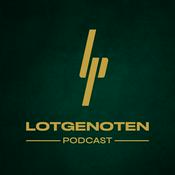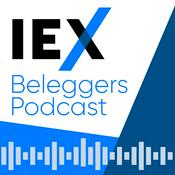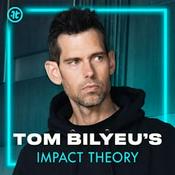124 afleveringen
Chris Vermeulen: Silver Manipulation, Oil ‘Breaking Out’ & Why Big Moves Are Ahead for Gold
20-2-2026 | 32 Min.Stijn Schmitz welcomes back Chris Vermeulen to the show. Chris Vermeulen is Founder & Chief Investment Officer, The Technical Traders. In this episode, Vermeulen provides a comprehensive insights into the current market landscape, focusing primarily on precious metals, equities, and broader economic trends. Regarding precious metals, Vermeulen describes the recent market as experiencing significant volatility, with gold and silver experiencing a massive rally followed by a sharp correction. He notes that while long-term trends remain bullish, short-term signals are mixed and uncertain. The market is currently in a “no man’s land” where investors are waiting to see whether metals will consolidate and launch another rally or experience a substantial pullback.
On equities, Vermeulen indicates that markets are precariously balanced. The S&P 500 is “clinging by a thread” to an uptrend, with the Nasdaq showing potential signs of breakdown. He observes that “smart money” is moving into defensive sectors like utilities and consumer staples, suggesting underlying market nervousness. Vermeulen’s investment approach emphasizes technical analysis and following price trends rather than attempting to predict exact market tops and bottoms. Currently, his strategy involves maintaining approximately 70% cash position and waiting for clearer market signals. He believes the market is primed for significant movement, whether upward or downward.
Regarding currencies, Vermeulen remains bullish on the US dollar, suggesting it could potentially rally 10-15%, which would put pressure on gold prices. He also highlights the importance of understanding currency movements as part of a comprehensive investment strategy. When discussing other asset classes like oil, copper, and uranium, Vermeulen sees similar patterns of uncertainty and consolidation. His overall message is one of patience: waiting for clear trends to emerge before committing capital, and prioritizing capital preservation over aggressive speculation.
Timestamps:
00:00:00 – Introduction
00:00:53 – Precious Metals Volatility Drivers
00:02:42 – Sector Upside Potential
00:05:42 – Technical Trading Philosophy
00:08:34 – 2007 Market Comparison
00:10:11 – Silver Leverage Play
00:14:03 – Fiat and Manipulation Concerns
00:16:32 – US Dollar Outlook
00:20:32 – Equities Market Trends
00:24:08 – Miners Lagging Analysis
00:25:49 – Oil Prices Update
00:29:25 – Copper Uranium Rundown
00:30:44 – Technical Traders Service
00:31:51 – Concluding Thoughts
Guest Links:
Website: https://thetechnicaltraders.com/
X: https://x.com/TheTechTraders
Chris Vermeulen is the Founder & Chief Investment Officer of The Technical Traders and the visionary mind behind Asset Revesting. In his book Asset Revesting – How to Exclusively Hold Assets Rising in Value, Profit During Bear Markets, and Continue Building Wealth in Retirement, he lays out this investment framework.
Chris launched his financial career at 16, parlaying his knack for trading and risk management into funding his final year of college, where he earned a business diploma in operations management. By his twenties, he had achieved financial independence as a full-time entrepreneur and trader. After a setback—blowing up a trading account—Chris dedicated himself to treating trading as a business, completing the Trading Strategy Mastery and Trading Is Your Business courses.
A technical analysis expert, he devises systematic methods to spot market opportunities and control portfolio risk, rejecting traditional buy-and-hold approaches that cling to depreciating assets. His efficient asset allocation models balance short- and long-term strategies to minimize drawdowns and consistently outperform benchmarks. Those seeking reliable capital preservation and growth turn to his proven techniques.Dr. Arthur Laffer: The Return Of The Gold Standard & Why The US Economy Is Stronger Than Ever
18-2-2026 | 58 Min.Stijn Schmitz welcomes Dr. Arthur Laffer to the show. Mr. Laffer is a Renowned American Economist and Best-Selling Author. In this wide-ranging discussion, Dr. Laffer provides deep insights into economic policy, drawing from his extensive experience as an economist and advisor to President Reagan. Dr. Laffer emphasizes the importance of five key pillars of economic prosperity: taxes, spending, monetary policy, regulatory policy, and trade policy. He argues that lower tax rates, spending restraint, sound monetary policy, minimal regulations, and free trade are essential for economic growth.
Reflecting on his work with Reagan, he highlights how reducing tax rates from 70% to 28% and implementing strategic monetary policies transformed the US economy. Discussing current economic challenges, Dr. Laffer is optimistic about the US economy. He addresses concerns about national debt, arguing that while the numbers appear large, they are not as dire as they seem when considering debt-to-wealth ratios and debt service costs. He warns against income redistribution policies, presenting a mathematical theorem that demonstrates how such transfers invariably reduce total economic production. On monetary policy, Dr. Laffer criticizes recent Federal Reserve approaches, advocating for a price rule similar to the gold standard. He sees gold and cryptocurrencies as refuges from poor monetary management, believing private market solutions can create more stable currencies. He’s particularly impressed with stablecoins like Tether and their potential to provide monetary alternatives.
Regarding global trade and geopolitics, Dr. Laffer advocates for peace through economic strength. He believes in free trade and mutual prosperity, arguing that countries should focus on becoming trading partners rather than adversaries. He’s critical of over-regulation and redistributionist policies in Europe and supports market-driven solutions to challenges like climate change. Throughout the interview, Dr. Laffer’s core message remains consistent: economic prosperity comes from creating incentives for production, minimizing government intervention, and allowing free markets to solve problems.
Timestamps:
00:00:00 – Introduction
00:00:49 – US Economy Strength
00:04:10 – Supply Chain Concerns
00:05:29 – China Trade Partnership
00:06:10 – Trump’s Reshoring Policies
00:09:02 – Globalization Perspectives
00:10:15 – European Economy Critique
00:12:13 – Monetary Policy Insights
00:16:45 – National Debt Analysis
00:25:50 – Unfunded Liabilities View
00:29:09 – Redistribution Theorem Explained
00:35:01 – Gold’s Safe Haven Role
00:38:46 – Peace Through Strength
00:45:05 – BRICS Currency Alternatives
00:49:25 – Tether and Gold
00:52:42 – Concluding Thoughts
Guest Links:
Website: https://laffercenter.org
X: https://x.com/LafferCenter
Amazon Book: https://tinyurl.com/4tdtp5pm
Widely known as the “Father of Supply-Side Economics,” Dr. Arthur B. Laffer is one of the most influential economic minds of the last century. He is best known for the Laffer Curve, a groundbreaking theoretical construct illustrating the critical tradeoff between tax rates and government revenue—an idea Time Magazine named one of the few advances that “powered the 20th century”.
Dr. Laffer’s career spans the highest levels of academia and public policy. He served as the first Chief Economist at the Office of Management and Budget and was a core member of President Ronald Reagan’s Economic Policy Advisory Board during both terms. His counsel was instrumental in triggering the global tax-cutting movement of the 1980s, advising leaders ranging from Margaret Thatcher to Donald Rumsfeld.
An alumnus of Yale and Stanford, Dr. Laffer held distinguished professorships at the University of Chicago, USC, and Pepperdine. Today, he is the Chairman of Laffer Associates, providing institutional research and consulting from his base in Nashville. A prolific author of works including The End of Prosperity and Trumponomics, Dr. Laffer continues to shape the global conversation on fiscal policy and market incentives.Doomberg: Gold’s New Role in A Multi-Polar World, World War 3 & The AI Singularity
12-2-2026 | 55 Min.Stijn Schmitz welcomes Doomberg to the show. Doomberg is the head writer For The Doomberg Team and creator of the Doomberg Substack. The interview delves into the complex geopolitical landscape, focusing on the transition from a unipolar to a multipolar world, with particular emphasis on the rising power of China and the potential decline of the United States. Doomberg argues that the world is effectively in the early stages of World War III, which began around 2014, characterized by economic and strategic conflicts between the Western-based financial system and the emerging global south led by China and BRICS countries.
A significant part of the discussion centers on technological transformation, particularly artificial intelligence (AI). Doomberg highlights the rapid acceleration of AI capabilities, with the doubling time of technological advancement potentially shrinking to weeks. He suggests that AI and robotics could fundamentally reshape geopolitical dynamics, potentially mitigating demographic challenges for countries like China.
The conversation also explores critical mineral dynamics, energy markets, and the potential for de-dollarization. Doomberg believes there is substantial room for gold to appreciate as a neutral reserve asset, potentially reaching prices around $5,000 to $21,000 per ounce to rejuvenate US manufacturing and global trade settlements. Regarding the United States’ future, Doomberg remains cautiously optimistic. He argues that despite current challenges, the US has significant advantages, including being the world’s largest energy producer, advanced AI capabilities, and substantial natural resources. However, he emphasizes the importance of strategic focus and avoiding resource-draining international conflicts.
Lastly the conversation touches on Europe’s diminishing global relevance, primarily due to its energy dependence and lack of industrial capacity. Doomberg suggests the European Union is already experiencing structural challenges that could potentially lead to its fragmentation. Ultimately, Doomberg presents a nuanced view of global power dynamics, emphasizing technological innovation, energy resources, and strategic adaptability as key factors in determining future geopolitical landscapes.
Timestamps:
00:00:00 – Introduction
00:00:44 – Geopolitical Landscape Overview
00:02:05 – Historical Empire Parallels
00:03:35 – World War III Framework
00:05:15 – Critical Minerals War
00:07:58 – China’s Energy Security
00:11:43 – Trump’s Venezuela Iran Strategy
00:14:08 – Iran Conflict Energy Markets
00:21:20 – AI Singularity Approach
00:26:37 – Gold & US Power Retention
00:30:59 – BRICS Currency & Settlement
00:35:40 – Critical Mineral Concerns
00:37:22 – U.S. Outcomes
00:40:48 – Europe’s Multipolar Irrelevance
00:45:09 – Commodity Trends
00:51:42 – Silver Fundamentals
00:54:28 – Concluding Thoughts
Guest Links:
Substack: https://doomberg.substack.com
X: https://x.com/DoombergT
Website: https://doomberg.com
Doomberg is the anonymous publishing arm of a bespoke consulting firm providing advisory services to family offices and c-suite executives. Its principals apply their decades of experience across heavy industry, private equity, and finance to deliver innovative thinking and clarity to complex problems.Henrik Zeberg: Expect a Final Rally Before a Dot-Com-Style Crash & Huge Pullback on Gold
11-2-2026 | 51 Min.Stijn Schmitz welcomes Henrik Zeberg to the show. Henrik Zeberg is Head Macro Economist at Swissblock. In this in-depth discussion, Zeberg provides a comprehensive analysis of the current economic landscape, focusing on potential market dynamics and an impending economic recession. Zeberg argues that the current market, particularly in technology and AI, resembles the dot-com bubble, with valuations reaching unsustainable levels. He suggests that while AI will indeed be transformative, the current market exuberance is reminiscent of previous technological bubbles where expectations far outpace immediate economic realities.
The market capitalization to GDP ratio currently stands at approximately 230%, compared to 137% during the dot-com bubble, indicating extreme market overvaluation. Regarding the economic outlook, Zeberg predicts a recession starting no later than the second quarter of 2026, potentially in March or April. He points to significant weaknesses in the job market, with job creation at its lowest levels in 50 years and a growing disconnect between the financial world and real economic conditions. The labor market indicators suggest a substantial economic slowdown, with 50% of consumer spending coming from just 10% of the population.
Henrik anticipates a complex economic cycle involving an initial deflationary period followed by potential inflationary pressures. He expects the Federal Reserve will attempt to intervene, potentially creating a market rally before an eventual significant market correction. He suggests that investors should be prepared for volatility and consider hard assets like real estate, commodities, and precious metals as potential long-term investments.
In terms of investment strategy, Zeberg recommends controlling emotional responses, avoiding getting caught in market euphoria, and being patient. He believes the current environment requires careful navigation, with potential opportunities emerging after a meaningful market pullback. The key is understanding that the era of double-digit growth in speculative assets is likely coming to an end.
Timestamps:
00:00:00 – Introduction
00:00:46 – AI vs Dotcom Bubble
00:04:20 – Current Market Valuations
00:09:58 – Market Cap GDP Anomalies
00:12:07 – Consumer Job Market Weakness
00:15:18 – Delinquency Trends
00:16:38 – Historical Recession Parallels
00:18:40 – Government Debt Constraints
00:21:24 – Fed Intervention Inflation
00:26:25 – Deflationary to Inflationary Shift
00:29:37 – Asset Allocation Strategies
00:32:00 – Key Economic Indicators
00:36:05 – Gold Silver Outlook
00:43:14 – Recession Timeline Prediction
Guest Links:
Substack: https://henrikzeberg.substack.com
X: https://x.com/HenrikZeberg
Website: https://swissblock.net/
Henrik Zeberg is a Macroeconomist (M.Sc. Econ) from the University of Copenhagen. He is a Business Cycles student, Elliott Wave practitioner, and Chartist. He is the Head Macro Economist at Swissblock where he writes the Zeberg letter a comprehensive monthly macroeconomic report.William Rhind: Gold Price Manipulation, The AI-Bubble & Passive Investment Distortions
09-2-2026 | 48 Min.Stijn Schmitz welcomes William Rhind to the show. William is the Founder and CEO of GraniteShares. Rhind provides insights into the current market landscape, emphasizing the early stages of AI development and the potential for significant transformation across various sectors. Regarding market volatility, Rhind attributes recent fluctuations to multiple factors, including potential Federal Reserve leadership changes, cryptocurrency market movements, and concerns about AI’s impact on software companies. He argues that we are in the early stages of AI development, with significant potential for innovation and disruption across industries.
Rhind highlights the ongoing bull market for hard assets, driven by global economic uncertainties, central bank buying, and concerns about currency debasement. He notes that emerging market central banks are actively diversifying their reserves by purchasing gold, viewing it as a strategic hedge against paper currencies. Platinum receives special attention, with Rhind explaining its unique market dynamics. He points out that platinum is about 30 times rarer than gold and currently sits in a market deficit. The metal’s future looks promising, particularly as previous bearish sentiment around internal combustion engines has dissipated and industrial demand remains strong.
Rhind suggests that while passive investing has benefits, too much concentration can potentially create market inefficiencies. He advocates for a “core and satellite” approach to investing, balancing long-term retirement strategies with more speculative investments.
Timestamps:
00:00:00 – Introduction
00:01:00 – Investor Demand Trends
00:02:00 – Market Volatility Drivers
00:04:28 – AI Bubble Debate
00:06:30 – Dot-com Bubble Comparison
00:10:45 – Commodities in AI Chain
00:12:40 – Energy Sector Opportunities
00:14:12 – Currency Debasement Thesis
00:17:03 – Precious Metals Bull Market
00:19:00 – Central Bank Gold Buying
00:22:02 – De-dollarization and Dollar Outlook
00:28:00 – Silver Market Dynamics
00:32:42 – Platinum Investment Case
00:39:30 – Passive Investing Trends
00:44:40 – U.S. Equity Market Size
00:46:12 – Concluding Thoughts
Guest Links:
Website: https://graniteshares.com
LinkedIn: https://www.linkedin.com/in/william-rhind-5434367
In 2016, Will Rhind challenged himself to find a way to do things differently. As a 18-year veteran of the ETF industry with experience working at, building and running, well-established successful ETF businesses, he made a keen observation: investing just isn’t as exciting as it once was. He asked himself, how do you bring back that excitement? As an experienced entrepreneur, he decided to answer that question by launching his own ETF company – GraniteShares was born. Will’s focus on disrupting the financial industry has taken GraniteShares from an idea to a successful start-up garnering the attention of Bain Capital and other well-known ETF investors who support his passion to create products that will change the way people see investing. Will spends his time outside of GraniteShares with his wife and three children. He’s on the Board of Directors of the Bath University Foundation, has a passion for classic cars, Manchester United, and travel – especially back to his roots in Aberdeen, Scotland, “The Granite City.” Will has over 25 years of experience in the industry.
Meer Zaken en persoonlijke financiën podcasts
Trending Zaken en persoonlijke financiën -podcasts
Over Palisades Gold Radio
Podcast by Palisades Gold Radio
Podcast websiteLuister naar Palisades Gold Radio, Doorzetters | met Ruud Hendriks en Richard Bross en vele andere podcasts van over de hele wereld met de radio.net-app

Ontvang de gratis radio.net app
- Zenders en podcasts om te bookmarken
- Streamen via Wi-Fi of Bluetooth
- Ondersteunt Carplay & Android Auto
- Veel andere app-functies
Ontvang de gratis radio.net app
- Zenders en podcasts om te bookmarken
- Streamen via Wi-Fi of Bluetooth
- Ondersteunt Carplay & Android Auto
- Veel andere app-functies


Palisades Gold Radio
Scan de code,
download de app,
luisteren.
download de app,
luisteren.



































